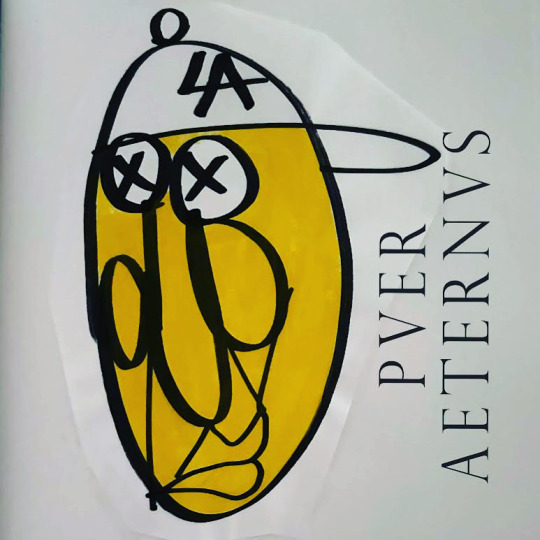#puer aeternus
Text

just a child
#dionysus#dionysos#bacchus#greek mythology#roman mythology#greek god#roman good#puer aeternus#illustration#digital art#procreate
107 notes
·
View notes
Text
Puer aeternus
Puer aeternus in mythology is a child-god who is forever young. In psychology, it is an older person whose emotional life has remained at an adolescent level, which is also known as Peter Pan syndrome. The puer typically leads a provisional life due to the fear of being caught in a situation from which it might not be possible to escape. He or she covets independence and freedom, opposes boundaries and limits, and tends to find any restriction intolerable.
22 notes
·
View notes
Text
Ne: The Myth of the Puer Aeternus
The spiritual experience of Ne is called Mer, which is described more completely in this page. Mer is a psychological archetype best known as the Puer Aeternus; a Divine Child with the ability to distort or alter reality. As a symbol, Mer appears in the form of a golden egg, a genie lamp, or a deux ex machina. We find the spirit of Mer in characters such as Peter Pan, Paprika, and The Little Prince. These archetypal characters are almost always unbounded by gravity, able to fly and always have some capacity to use magic in a playful manner. They are provisional, innocent, and entirely without responsibility. Like the spirit of Mer, there is a quality that Ne brings to its user which is floaty, flighty, surreal and nebulous. It may feel as if every mental step taken is a leap into new worlds, causing them to have a fantastical, spritely energy or the quality of air. The individual enveloped by Mer may feel non-literal, non-corporeal and as if they were a caricature of themselves. Relating this quality to music, the floaty energy of Ne carries the tone of Mozart's Turkish March or the Dance Of The Sugarplum Fairy.
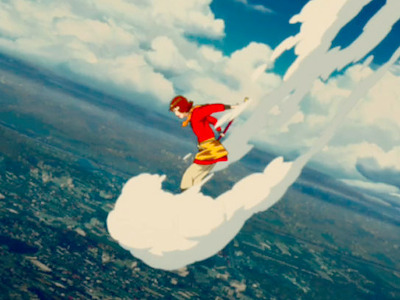
Rebirth & Child-like Wonder
The myth of Mer, when personally felt, ignites a yearning for reality to contain something other than the mundane and ordinary. There is a craving for something more than this, which hearkens back to a time when reality did exist as an interesting and unknown place which had not yet been dulled by repeated exposure. A return to infancy; rebirth. It represents the way we are before the world's laws and restrictions oblige us to narrow our perceptions into practical parameters. As such, Mer carries the capacity to rejuvenate weary eyes and to unlearn all that which prevents us from truly appreciating the mysteries of this universe. Mer may notice how odd it is that humans suddenly fall unconscious and helpless for eight hours every day, and nobody seems to mind it. It may ask why we have five fingers and not four, or why we only have long hair on our head or why we have eyebrows - and other questions that any 'sensible' adult has long since stopped caring about. The evocation of Mer is like that of a newborn child who is seeing things for the first time. As the laws of physics haven't yet been established, anything seems possible and the child explores this new universe he has landed into with no prejudice whatsoever. Mer is especially captivated by glittery things such as prisms for their magical capacity to generate a rainbow spectrum, by the allure of distant stars and the reflection of light on morning dew. It holds an eternal wanderlust that compels its user to see what's beyond the next horizon or around the next corner.
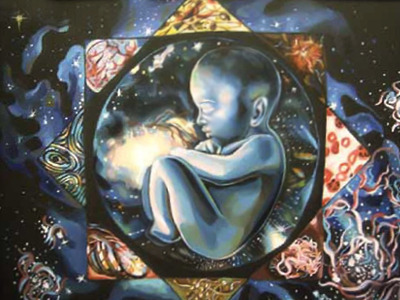
Madness & Mischief
As is true of all archetypes, Mer also has a dark form. When life has remained monotonous and dreary for too long, the Ne user's psyche will begin to suffocate and atrophy in the wake of their restrictive situation. Anything that can transform their world away from its present parameters -- even if it's violent and destructive -- will be felt as better than continuing along the same road. Reality becomes a prison which must be escaped, and they will escape this reality in the only way possible; by going deeper into fantasy. The individual's repressed desire for life will break the shackles of life through a series of nightmares and eventually into waking daydreams; distorting reality into chaotic and manic dreamworlds. We see this exemplified perfectly in the tale of Alice in Wonderland, where what starts as a playful fantasy devolves into a frightening world of impossible creatures and surreal situations filled with wacky characters made from the juxtaposition of concepts or memes. The form of Mer will switch from a Divine Child into a playfully mischievous daemon. The Cheshire Cat and the Mad Hatter are, in this tale, the archetypes of the dark side of Mer; speaking to the individual through cryptic, nonsensical absurdities. Here Mer begins to have strong crossover with Ver's trickster archetype; enjoying pranks and developing a dark sense of humor. Other depictions of this iteration of Ne are seen in Invader Zim or Rick & Morty where the protagonists are mad scientists that use their talents for chaotic, fantastical amusements. Madness is chosen above the sterility of sanity, and mischief is taken above the blandness of sensibility.

#Cognitive Typology#Cognitive Functions#Extroverted Intuition#Ne#ENTP#ENFP#Mythology#Archetypes#Puer Aeternus#Rebirth#Child-like Wonder#Madness#Mischief#Potentiality
7 notes
·
View notes
Text

Marie Louise Von Franz- Puer Aeternus
#this is a joke im sorry#she never mentions transgender ppl#carl jung#marie louise von franz#transgender#puer aeternus
2 notes
·
View notes
Text
“In Jung's conception, the puer typically leads a ‘provisional life’ due to the fear of being caught in a situation from which it might not be possible to escape. He (or she) covets independence and freedom, opposes boundaries and limits, and tends to find any restriction intolerable.”
2 notes
·
View notes
Text
Some observations about Baldurs Gate 3 that hit too close to home.
After another few runs i will probably just make an in-Depth Character Analysis for every character simply because they are good reflections of actual trauma-manifestations and how abuse can manifest in people. They are also so well written that it serves a narrative purpose to explore all the material that is out there about them. I am also personally cursed with actual medically-relevant levels of Empathy and Hyperfixation; so writing this helps me put a pin in it and move on.
But so far here are my highlights
(SPOILERS and obviously content warning bc these are deep)
before you ask; i have almost 300h in this game.
You have to convince Shadowheart to eat the Noblestalk. She actually stells you she rather get her memories back from Shar but when you hit the persuasion or intimidation (what the fuck) check to get her to eat it she'll tell you about her childhood friend. Not her name, not her parents but her best firend. Possibly because she has had a closer bond to that person after being abducted and indoctrinated. With her believing herself to be an orphan, she would've looked elsewhere for comfort and sought out her own family, this is why she falls hard and heavy for Shar and builds the backbone of her indoctrination. She is literally ripped out of her home & given a new identity to server her from all she has known.
Religious indoctrination, Gaslighting, Abduction, being forced to let go of your personality are her main themes.
There is a scene out there floating around in which you see Astarions pespective of the night when he bites Tav for the first time, in his meditations he is confronted with the rules Cazador put on him, including that he can't eat intelligent creatures, can't be away from Cazador unless allowed to, has to obey every command and that they are should know that they are property. Which in turn means that Astarion literally didn't just have any autonomy, he was objectified (and not just through seductive/sexual measures) and that is really the crux to understanding why he doesn't believe in kindness, but rather shows self-serving behavior in most cases.
Since we know that Astarion was extremely young for an elf before he died and became immortal (literally stopping the aging /maturing process) it is also very telling that Cazador constantly calls him brat, boy or other very juvanile names, refering to them as a family... well it is also the story of a very controlling parent.
Themes of (Bodily) autonomy, infantilization ( & puer aeternus, forever-child), slavery, depersonalisation, corruption of life and torture to break someone.
Gale isn't just a guy hung up on his Ex, but also a victim of abuse. In this case a power imbalance none of us can fathom; She is described as being a jealous goddess and rules over the domain of mysteries and magic. So with Gale being a Wizard, she is literally his boss. He admits that he was foolish enough to aspire to be an equal to her, but she is so jealous that she tells him he can't really be worthy as long as he takes breath. She could just take his powers away and be done with it, that would be more than enough punishment for a guy who literally made Mystra and her domain his life's purpose, but she rather makes him do it himself. Add to that, that she literally only tells him this after years of self-isolation (after he put down so many wards that he could've blown up a whole army as he says if you click the right dialogue) to really fuck him up well. He also talks about death pretty much constantly, not surprising giving your situation, but he will tell you that he will kill himself at several points in the game, for instance after he comes clear about his nethrese orb.
Themes of romantic abuse, power-imbalance, toxic work enviorment, self-isolating behavior, suicidal ideation
Wyll ... well from the looks of it he is the most well adjusted of all the companions (my opinion) but he has something that i'd describe as the "eldest daughter"-syndrome, more commonly known as parentification. This pattern usually occurs within single-household parents and is commonly described as a parent looking to their child for emotional or practical support, rather than providing it to their kid. We meet Ulder and see that he talks over Wyll a lot, not listening but expecting him to follow the standard he sets for him. That is also why Wyll repeats his fathers words like gospel (because this is what, in his mind, fullfills the expectations bestowed upon him) and why he loves fairytales / bard tales so much (because they are an ecapist view of the job he set out to do)
Ulder literally exiled his teenage son because Wyll did the only thing he could to save an entire city, by sacrificing himself. Thats a lot to expect from a 17 year old - even more so, he doesn't stop with the heroics. He expects himself, as a human who hasn't even reached the age of 30 to hold up to mystical creatures such as Astarion or Karlach, or even Gale who is a accomplished Wizard.
Themes of parentification, escapism, self-harming through putting himself in danger, chronic-self-sacrifice
In plain words; Gortash, Karlach's Idol sold her to a Devil. But add to that that she must have been pretty young when she was sold (late teens to early twenties possibly) and being that if you play as a Tiefling, you face a lot of predjudice she was likely forced into that position as well. Starstruck she was, with a juvenile naitivy that Gortash used. Appropriately, as he is the chosen of Bane the god of "tyrannical oppression, terror, and hate, known across Faerûn as the face of pure evil through malevolent despotism" (Source: Forgotten-Realms Wiki / Bane)
So she pretty much was raised in a toxic enviorment, which forced her to become a killing-machine, first figuretively, then with the extraction of her heart, literally.
Themes of slavery, oppression, misuse of trust, being taken advantage by a more powerful/older(?) person, being drafted.
Jaheira - to be honest, you need to know the lore of the previous baldurs gate games or just listen to her dialouge, ask her all the questions. She is a war-veteran against Bhaal, the good of ritual murder, and has a long history of fighting to achieve some sort of balance of power. She lost her husband and several close people all to this, or any other war, but due to her wisdom and strength people look to her for guidance.
Themes of: Survivors Guilt.
Halsin - he is really closed off at first but then just casually hits you with "i was captured in the underdark and spent 3 years chained to a bedroom wall by a pair of drows who used me as they pleased".
He is reprimanded by some of his druids for leaving the grove as soon as opportunity struck, just to get back and leave the next day, and if you talk to him about his position in the grove he is actually very forthcomming. He actively holds himself back; indulging in simple hobbies because he knows what lies within his heart. He is afraid of himself and his potential (canonnically he can't control his wildshape, which is very weird for an ARCH-druid)
Themes of: impostor syndrome, avoidant-based self-harm, sexual opression, loss of control, emotional regulation.
Lae'zel is a very tragic case, and one that closely resembles the stories of Shadowheart and Karlach. Her entire existence is based upon a matriachial war society allowing her to live if she proves she can be of use and that in a culture which only values brutality, dominance & service. All of that culimating in her finding out that her oh-so-beloved Queen is actually just an imposter, and that everything she has lived for up to that point is merely political propaganda created to make her, and the rest of her entire species, willing pawns in a war that has no longer bearing on their survival alone, but is fought to justify Vlaakith's (the reigning monarchs) personal ambitions. Not only is she forced to reconcile that she is turned into the thing that controlled her kind for hundreds of years, that the only cure she knows of would kill her and then on top of that, that her hopes and dreams were lies and that she is now the Nr 1 enemy of the person she has served with all her being.
themes of: oppression, propaganda, casual violence, objectification, child-warfare, eternal warfare
Minthara in short, her story is about being shamed for growing up in the same scenario that Lae'zel grew up in. Lolth, the god of the Lolth-sworn drows is a crazy queen who values scheming & backstabbing so much and is so volatile that you can't know what to expect of your deeds (and i mean it; there were people who were appraised by her for scheming against her, but also those who were killed. It's almost random.) She considers Lolth to be cruel and abandoned her for the Absolute, only to then be used and abused the same way Lae'zel has. Not with promises, but erasing her memory and exposing her perceived weakness.
Themes of: casual violence, violent culture, her own ambition colliding with her desire to be safe, being a pawn in a larger game.
#baldurs gate#bg3#baldurs gate 3#non-witchy#baldurs gate iii#baldurs gate character#background to baldurs gate 3#character analysis#analysis#fan theory#media analysis#astarion#wyll#karlach#minthara#halsin#jaheira#lae'zel#gale#minsc will have to wait#im sorry its so long#yeah some characters are a bit more shallow#i will go in depth sometime#dark urge has a grip on me i swear#please do yourself a favor and look up the earlier 2 games
2K notes
·
View notes
Text
Venus in scorpio/8th house/conjuct pluto/scorpio rising/pluto in 1st house: Malena
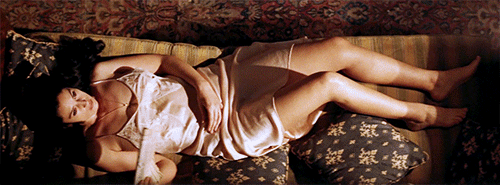
Envy, lust, provokes insecurities in others, provokes sexual desires, provokes fear and shame in others. Manipulative, controlling, abusive lovers. Men who are immature, infantile and puer aeternus are attracted to her, obsessed with her, want to use her, take advantage of her. Why do spiritually powerful women attract perverts and parasites? What is the pattern here? What is written in fates?
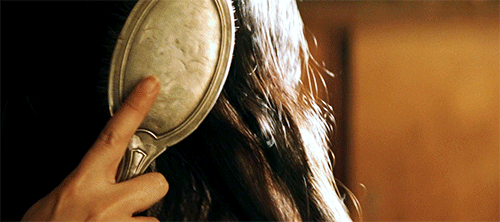
Charming, magnetic, sensual, feminine. Her silence captivates and threatens. Why doesn't she speak? What does she hide? Why is she so private? Why doesn't she smile? Why is she so powerful? Her life is transformed after marriage, after the news of death of her husband, after death of her father, after court trial where she was accused of adultery, after social beating and outcast. Her looks transform with seasons of life. Self destruction and reconstruction. Renewal of identity. Renewal of spirit.
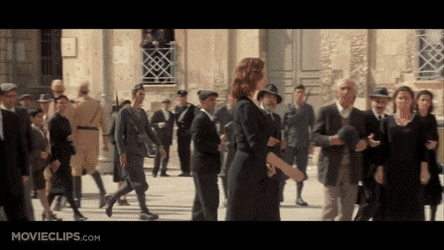
Attention puller. Men of all ages are obsessed with her. She is so powerful that the whole town hates her. Witch hunting. Subject of sexual fantasies. Character assassination. Stalker, abuse, voyeurism, sex, sex and sex. Life is sex, life is libido. She corrupts everyone, a home wrecker? Nah, all she does is provoke the darkness and shame in men, just with her existence. Slut shaming and abuse. Insecure women are her enemy - if only they could see their ugliness. Death and rebirth, tragedy of life, dark days - darker than the darkest.
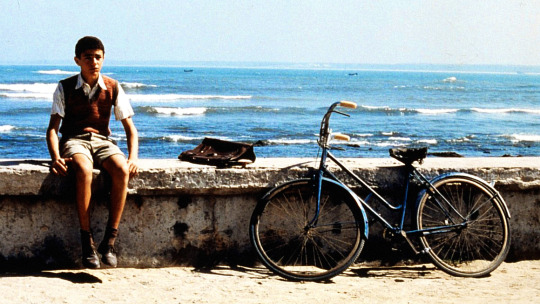
When I watched this movie, I found nothing funny about it. Not the silliest of jokes, not the desires of the kid boy. If anything, this movie was scary to watch because I know that women are actually treated this way, especially women with dark astrological placements. What is the life lesson here? Justice - we cannot trust the courts of law. What is the punishment for somebody's envy and insecurity? Darkness is treated with darkness. The strongest poisons make the best medicines.
#astro tumblr#astro notes#astrology#astrology blog#astro community#astroblr#venus in scorpio#venus in 8th house#venus conjunct pluto#scorpio rising#scorpio woman
731 notes
·
View notes
Text
Edogawa Ranpo- Puer Aeternus
I was just doing random stuff at 4:36 am when I came across this thing called Puer Aeternus during a psychology knowledge hunt and figured it really suited Ranpo.
Puer Aeterus, more commonly known as Peter Pan Syndrome, is a popular psychological expression describing people who find it difficult to grow up. Puer Aeterus means 'eternal boy/child' and came from the mythology of a god who is eternally young, as you can tell by the name.
Before I dive into my analysis, there were qualities of men with Puer Aueterus I found that I thought really described Ranpo. They are usually very attractive and influential, want freedom in their actions and live in their fantasies. Most of the time, the reason they dislike, or refuse to accept, the idea of growing up is to not be like 'boring adults' like how they should be. That's pretty Ranpo, right? There was also a description of them being immature, impatient and usually cannot bear the consequences of their own actions.
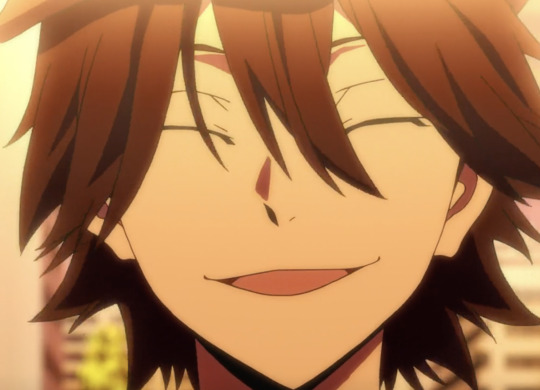
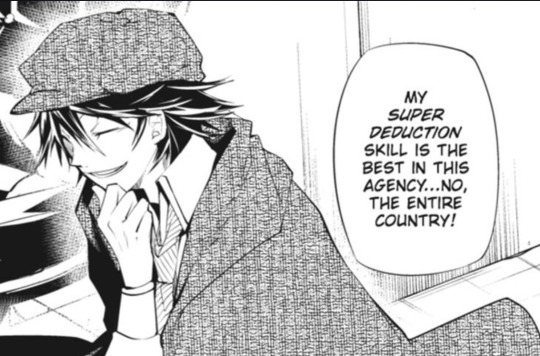

One of the symptoms of Puer Aueterus was seeing the world differently from others. With the 'elephant snake' scene of Little Prince as an example, we could see how an adult and a child see things differently, with the child showing more creativity and imagination. The further explanation is that Ranpo does not want to be living in the same way as boring adults, and therefore remains a childish personality. And Ranpo constantly sees the world differently from others emphasising his symptoms of Puer Aueterus.
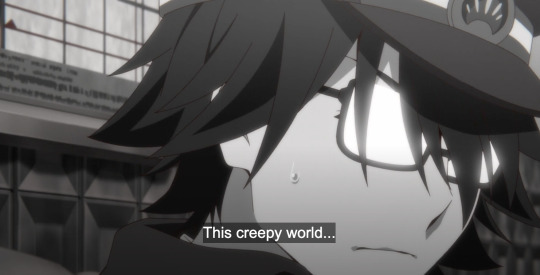
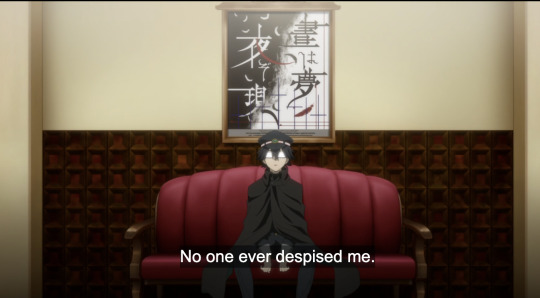
Some other symptoms of Peur Aueterus also include fear of challenges that they couldn't solve, being dependent and being attached and dependent on a close person. (That is clearly Fukuzawa) They really suited Ranpo, so it is almost certain he has Peur Aueterus.
People with Peur Aueterus also have trouble with relationships, and common issues were abandoning close relationships to salvage dying ones. This is only worth a little mention, for it does not really affect Ranpo.
So to summarise, Peur Aueterus is basically describing people who:
~Refuse to grow up and prefer to live in a more imaginative way (Ranpo Season 1 to Season 5)
~Constantly dependent and have trouble with attachment issues (Fukuzawa and Ranpo's relationship)
~Scared of the consequences of their actions (Not scared, but Ranpo really shows how the consequence of his actions affect him)
~Troubles with relationships and feelings (Ranpo was at first reluctant to save Atsushi in Season 1)
Personally, I thought that really suited Ranpo. But just as a clarification, this is just my own analysis and research and I am not an expert in Psychology. So think of this as some sort of reference and don't completely rely on this post. Also, Peur Aueterus isn't a mental illness/disability, it's just a psychological trait found in some people.
#bsd#bsd ranpo#ranpo edogawa bsd#ranpo#character analysis#bsd analysis#ranpo and fukuzawa#puer aueterus#peter pan syndrome#ranpo character analysis
26 notes
·
View notes
Text

Maria Sabina, curandera María Sabina (ca. 1894?[1] – November 23, 1985) was a Mazatec curandera who lived her entire life in a modest dwelling in the Sierra Mazateca of southern Mexico.
* * * *
“The healing hero, therefore, is the one who finds some creative way out, a way not already known, and does not follow a pattern. Ordinary sick people follow ordinary patterns, but the shaman cannot be cured by the usual methods of healing. He has to find the unique way, the only way that applies to him. The creative personality who can do that then becomes a healer and is recognized as such by his colleagues.”
― Marie-Louise von Franz, The Problem of the Puer Aeternus
#ReUnion#Marie-Louise von Franz#shaman#healing#healers#curandera#healing hero#creative means#the unique way
53 notes
·
View notes
Text
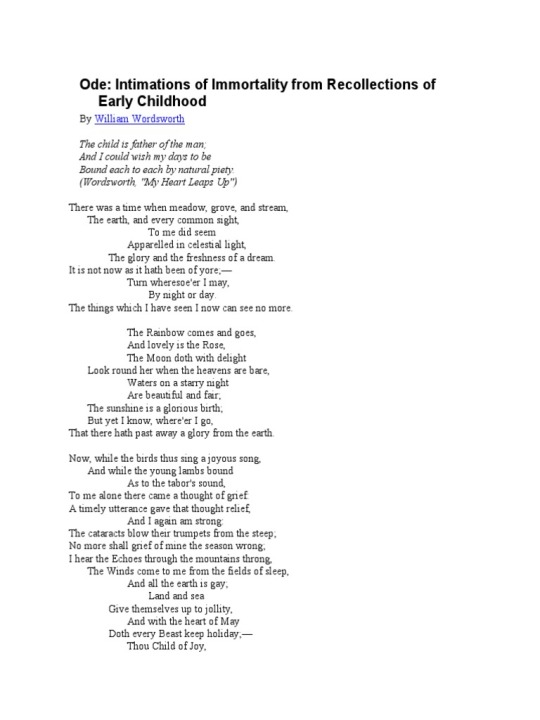
Stuck on the little prince or the puer aeternus. Can't get it off of my mind. The phone helps foster a million little princes
7 notes
·
View notes
Text
Traumerei's possible Peter Pan syndrome
Lo Po Bia Traumerei is such an interesting villain. It's been foreshadowed since the season 1 that he'll play a big role in the story of TOG. In this post, I'm talking about his name and the possible impact on the story. There will be spoiler from the whole webtoon, just to be warned.
Traumerei has got his name from Kinderszenen, a set of piano movements written by a German composer Robert Scumann in 1830's.
Kinderszenen includes 13 pieces of music - just like there were 13 irregulars climbing the tower before the Arlene & V -incident happened. Kinderszenen means "Scenes from Childhood" and movement no. 7, Träumerei, is one of the most famous pieces by this famous romantic era composer.
Träumerei means either dreams or reverie, but Traumerei WE know is not a day dreamer or an innocent, playful man like his name would suggest. He's a resentful and distrusting tyrant. More than that, he is overly obsessed about being able to control others and is constantly testing their obedience, complaining bitterly about how he's "used to being betrayed", like his own behavior had nothing to do about why this happens.
There is another word Träumerei reminds us, that is trauma, although the etymology is different. Word trauma has it's origin in Ancient Greek, and means a physical wound or damage. Today, when talking about trauma, we usually don't mean a psycical wound however, but a mental one.
To this point, we have learned that Traumerei has nightmares he can't remember - memories that are probably somehow linked to Baam or his parents, because he started to have those nigtmares only after hearing about his existence. He also had a habit of feeding his memories to the monster Leviathan, the very reason why he can't remember.
Leviathan is a biblical sea serpent, a dragon or a devil, and is sometimes associated with the cardinal sin of envy - as is the color green.
“O beware, my lord, of jealousy;
It is the green-eyed monster which doth mock the meat it feeds on.” - William Shakespeare
It could be the memories and/or emotions he fed to Leviathan are related to something he committed in his jealousy, maybe something parellel to what happened between Wang Wang, Nen Neya, Yasratcha and him. In s3 c111, after sending Wang Wang away, he says: "I felt something I haven't felt in a long time... from a mere creature... but I've gotten rid of it, so it's fine now." We don't hear what exactly he felt, so we can only guess, if it was envy or something else.
It's possible that Traumerei used to be different, but there really was a traumatic betrayal that changed him, like he keeps suggesting. Or then he's more like those people in the real world who find it difficult to accept that people around them mature. They feel betrayed and jealous when their friends, who are now married, have children and/or a career, are not ready to have online gaming all-nighthers with them just about any time they want.
In Jungian Psychology, there is an term for an individual, who, just like Peter Pan, refuses to mentally grow up and meet the responsibilites of the adult life - puer aeternus.
“…remains too long in adolescent psychology; that is, all those characteristics that are normal in a youth of seventeen or eighteen are continued into later life, coupled in most cases with too great a dependence on the mother.” - Marie-Louis von Franz
From his own point of view, Traumerei could be just a child bullied by everyone. Just like a cliché teenager, he's also easily bored and prone to mood-swings. We don't know about his mother (he never answers when Nen Neya asks, unfortunately), but we know that he has a somewhat dependant relationship with Jahad, "the Father".
Whatever Traumerei gave away to Leviathan, we can be quite sure that these were not the best and most beautiful memories of his life, but the worst and most traumatic ones. Getting those memories back might change him or destroy him - we don't know yet, but I would guess it's the latter. I personally find it difficult to see his cruelty could somehow be atoned - because unlike Yasratcha, who was dominated by him, he "made" himself and keeps only accusing others. I might be wrong, and we'll see when the story evolves. But even in TOG world of morally gray characters, Traumerei is on his own level of darkness.
#tower of god spoilers#tower of god#tower of god musical references#if everyone else around you is the problem maybe you're the problem
37 notes
·
View notes
Text

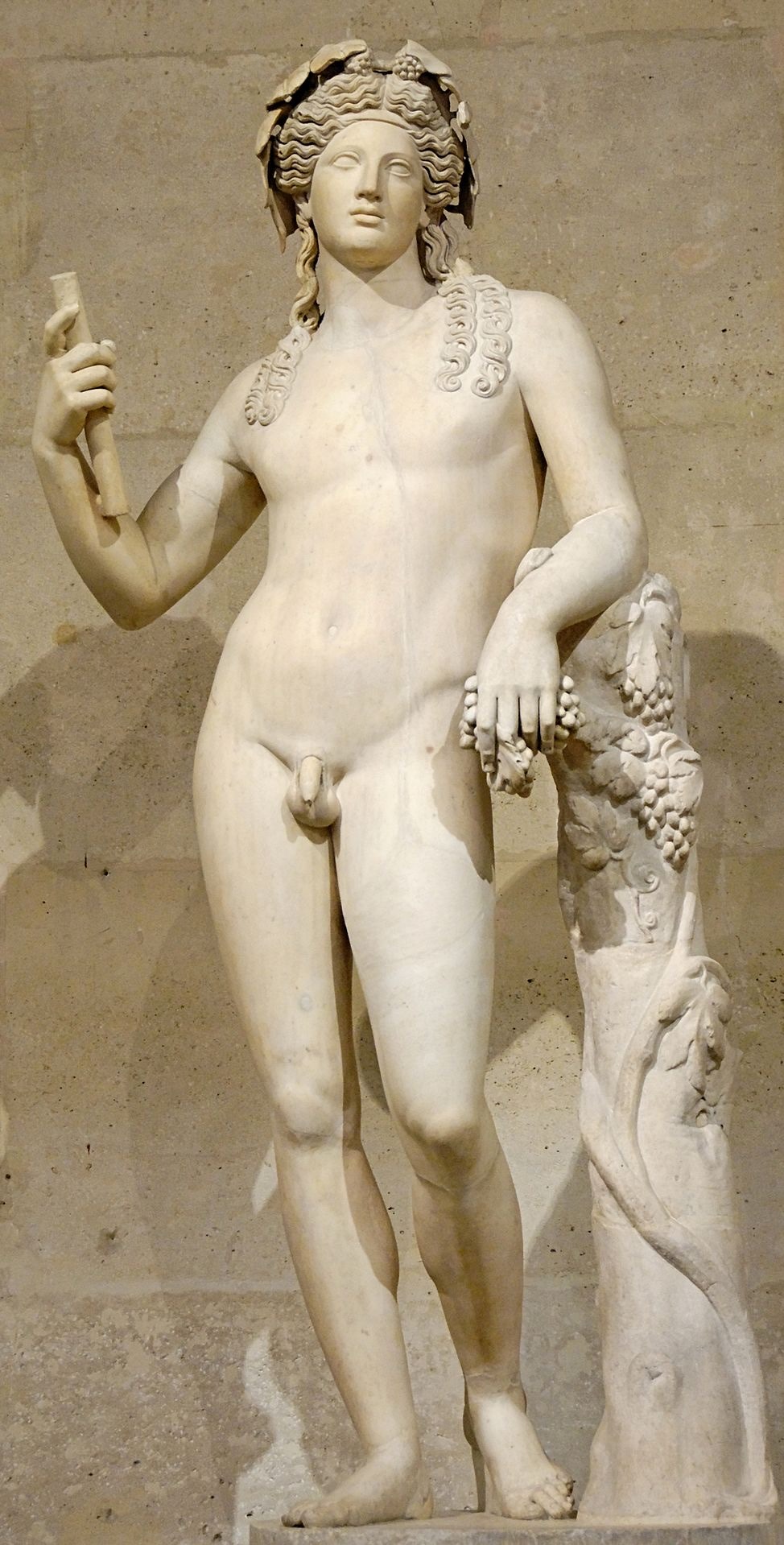
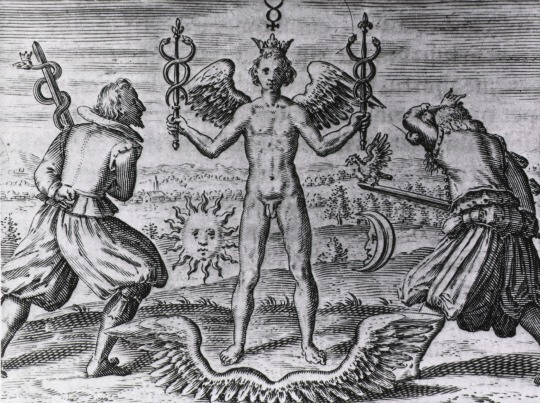
The Eternal Youth
“Man has two sides to him – outer and inner. The outer belongs to his external mind, the inner to his spiritual mind. For a long time these two are in opposition unless they have an intermediary between them. That means a Third Force, because anything that can intervene in the Work is called a Neutralizing Force or Third Force. And this Third Force means participating both in the external and the internal mind.
Shall we call the intermediary the Puer Aeternus, the eternal boy, as the Ancients called him? This intermediary is quite different from heavy intellectual thought and reasoning. Christ said: “Except ye become as little children, ye shall in no wise enter the Kingdom of Heaven.” He was talking about this intermediary between the physical and the spiritual worlds.
There is something in us, eternally young, that can understand beyond this visible world, beyond phenomenal reality. But this one thing in us, eternally young, is lost by us in the world of objects and the external things of the senses, and, using the logic of the senses, wastes itself in useless speculations which are without meaning for it, because it is capable of understanding a higher logic and a new world, utterly different from this dark world of sense and temporal logic into which it passes and in which it becomes lost.
All Self-Remembering has to do with the fact that you came down to this earth and life here does not correspond with what you came down from: and something in you knows it – that is, has not forgotten it: and that means remembers it. Identifying makes everything ugly. But the sense of beauty connects us with the two worlds of spirit and matter and so has to do with the intermediary or Puer Aeternus.” - Maurice Nicoll.
“That higher and 'complete' (teleios) man is begotten by the 'unknown' father and born from Wisdom, and it is he who, in the figure of the puer aeternus—'vultu mutabilis albus et ater' (“of changeful countenance, both white and black”) - represents our totality, which transcends consciousness." - Carl Jung.
46 notes
·
View notes
Text

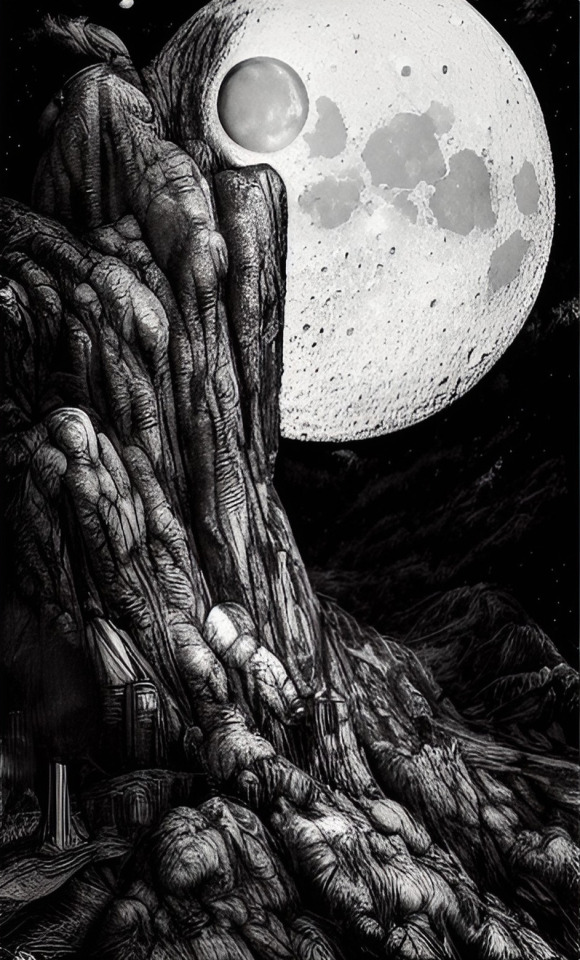
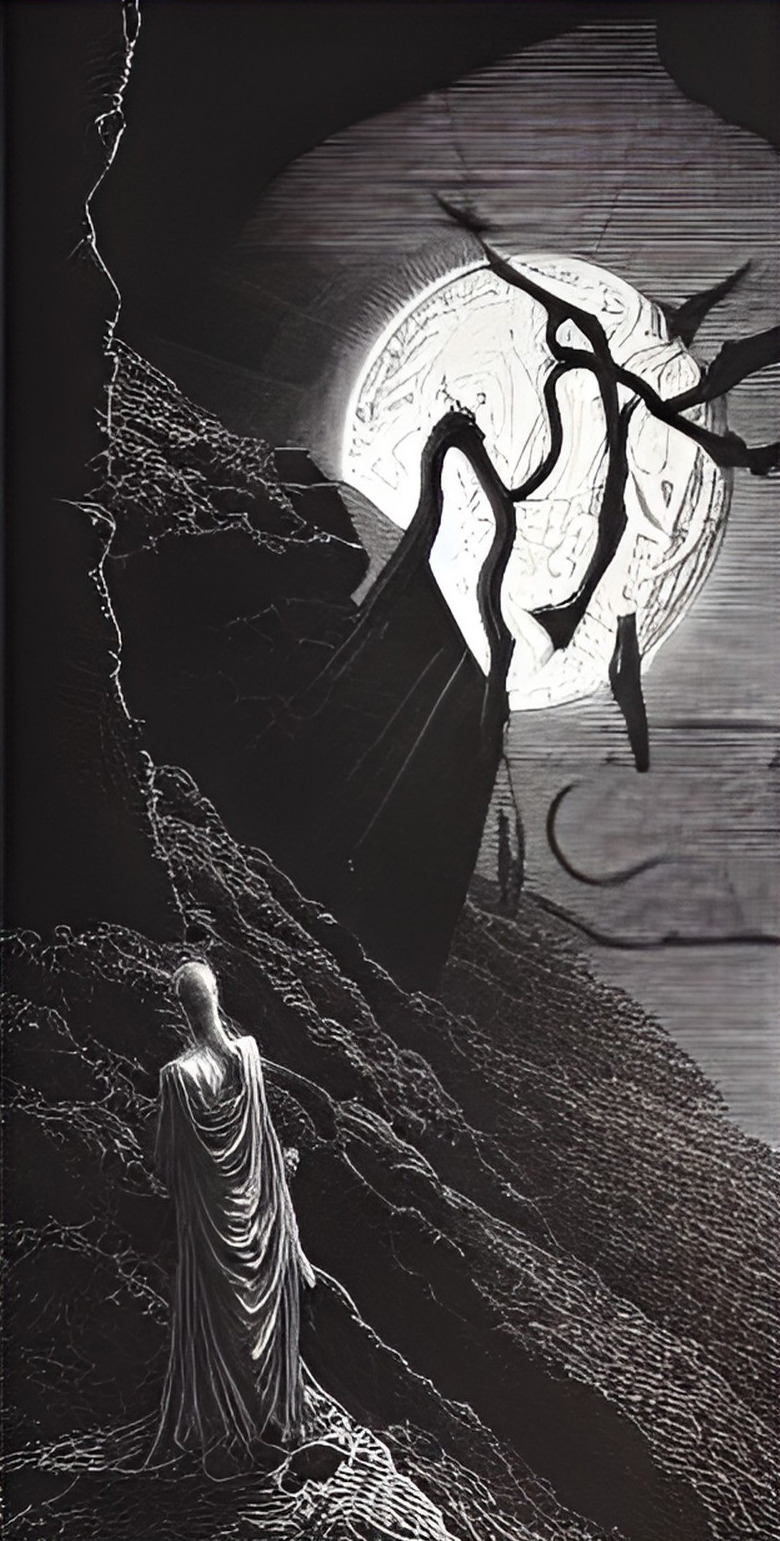
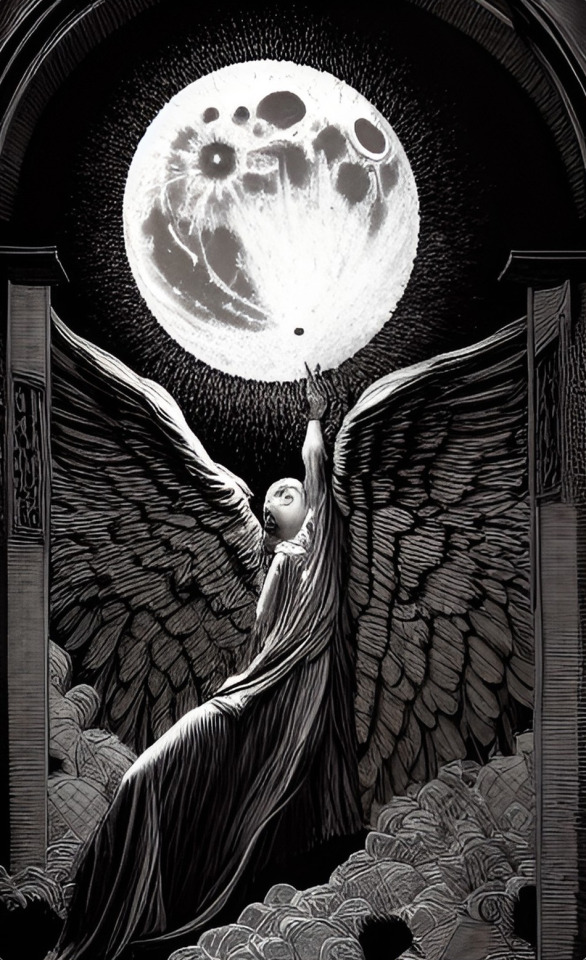
Alchemical Bestiary ~ 21. Moon
"In our alchemy, Luna symbolizes silver, and also the "queen", whose marriage with the "king" creates an androgynous being, by the marriage of Sol and Luna, Rex and Regina, after the opus lunae (the work of the moon, that is to say the work in white) and the opus solis (the work of the sun, the work in red) were carried out. It is from this conjunction that will be born the regius filius, the royal son, himself a hermaphrodite, who is the equivalent of the philosopher's gold and of the eternal child, the puer aeternus."
23 notes
·
View notes
Text
This all leads to a form of neurosis which h.g. baynes has described as the provisional life, that is, the strange attitude and feeling that one is not yet in real life. For the time being one is doing this or that, but whether it is a woman or a job, it is not yet what is really wanted, and there is always the fantasy that sometime in the future, the real thing will come about. If this attitude is prolonged, it means a constant inner refusal to commit oneself to the moment. With this there is often, to a smaller or greater extent, a saviour complex, or a messiah complex, with the secret thought that one day one will be able to save the world; the last word in philosophy, or religion, or politics, or art, or something else, will be found. This can go on so far as to be a typical pathological megalomania, or there may be minor traces of it in the idea that one's time has not yet come.
The Problem of the Puer Aeternus
Marie-Louise von Franz
4 notes
·
View notes
